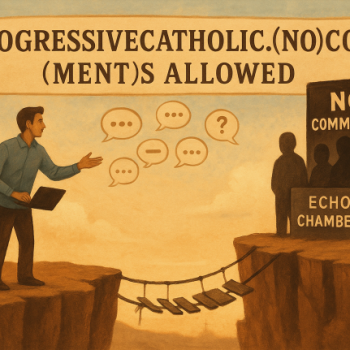GODSTUFF:
TO AIR CONDITION OR NOT TO AIR CONDITION: THAT IS THE MORAL DILEMMA
“No pleasure, no rapture, no exquisite sin
greater than central air.”
— The demon Azrael (Jason Lee) in “Dogma”
It’s not that I don’t care about the environment. I do, I swear.
I’m not one of those religious people who thinks creation is ours to dominate and its resources ours to spend like found money because Jesus is coming back and the world is going to end soon anyway.
Even if that were true — the coming back, end-of-the-world part — I sincerely doubt the Christ would be happy about his followers treating Earth as if it were a rental car.
While I’m not exactly a tree-hugger, I am very fond of trees. And, also, ozone.
The thing is … I love air conditioning.
And I hate, haaaaaaaaaaaate being hot.
My people (the fair-skinned Irish and blond Italians who carried my DNA to this land of promise not quite a century ago) were not made for the kind of heat we’ve been having with increasing and alarming frequency.
I am not a good person when I’m hot. It’s as if my evil twin Esmerelda takes over, menacing all those unfortunate enough to cross her overheated, swollen, sweaty path. Hot me is not loving, kind and patient. She’s surly, sour and hard to live with. Ask my husband.
Which is why, when we moved house last weekend in the 100-degree apocalyptic heat, I was so thrilled — no, not thrilled, GRATEFUL — for the central air conditioning in our new apartment.
“Oh, thank you Jesus,” were my first words upon entering our 68-degree oasis with a load of boxes. Central air conditioning is grace for me.
But what if my blessing is a curse for someone else? Like, say, the rest of the planet?
Air conditioning hurts the environment, quaffs energy, and hastens global warming.
But is my air conditioner evil?
And is it better to be hot and bothered than cool and complicit in our environmental demise?
I turned to a trinity of experts — a philosopher, an ethicist and a theologian — who ponder moral dilemmas for a living for help with my AC quandary.
“It is grace, but there is a price to be paid,” said Al Gini, a Loyola University philosophy professor and author of several books including Why It’s Hard to Be Good and The Importance of Being Lazy. “The glorious thing for you always has consequences for others.”
So what’s a girl to do, Al?
“I think you have to ask some really tough questions,” he said. “The heat is overwhelming. I think there are lots of decisions involved here. Comfort, age, health and necessity. And at the other end, luxury.
“The global warming effect requires some help for health reasons and for comfort reasons. I think this question is like money. Is money wrong? The answer is no. It’s how you use it.”
I could keep the thermostat at 72 instead of 68. Gini keeps his at 80 and he’s comfortable. But that sounds pretty summery to me, and not in the good way.
“Listen, don’t feel bad about it,” Gini said. “There are some things that are . . . good in and of themselves and don’t need to be defended.”
Yes, but the ozone. What about the ozone?
“You’ve got to ask this question of social priorities when people are sweltering in tenements and so forth, but you also have to ask the kind of moral question you’re raising, which is how do we offer our gift to the world if it would be intolerable for us to bear being too hot,” said Ken Vaux, a professor of ethics at Garrett-Evangelical Theological Seminary in Evanston. “There is no great virtue in asceticism, suffering because of guilt. I think a deeper moral value is to enhance one’s life contribution through one’s gifts and always be cognizant of making that available to everyone. And when you do that, then I think you’ve discharged your responsibility.”
Perhaps it’s a question of the greater good.
In that case, would the world be better off with my evil twin Esmerelda prowling the streets, or with one more air-conditioned apartment in the suburbs of Chicago?
Because of global warming, “We have created a situation where access to cool spaces has to be seen as a basic human right in most parts of the United States in a way we couldn’t have imagined 20 years ago,” said Tom Beaudoin, a Catholic theologian and professor at Santa Clara University.
“We’ve all made decisions and your air-conditioning story is just one example of a personal moral crisis that people experience in different parts of their lives about transportation or clothing or coffee or where they work or how they vote,” Beaudoin said. “There is this creeping sense that they may be able to live with themselves about this issue now, but they may not be able to down the road.
“You and I and anybody of good will — at the end of the day, you have to live with yourself,” he said.
Well, for now, it’s best to live with myself in air conditioning.















